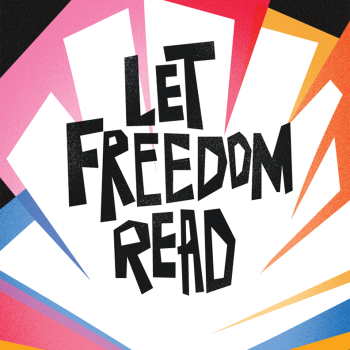
Challenges to books and other materials are on the increase in school and public libraries (see ALA's Frequently Challenged Books page for details). Check out the list of titles that NCTE has worked to protect! Banned Books Week, celebrated September 22-28, 2024, draws attention to the issue of censorship and how it can best be combated.
Begin by polling students. Ask how many of them are familiar with the following titles:
- Captain Underpants series
- A Wrinkle in Time
- The Adventures of Huckleberry Finn
- The Harry Potter series
- The Higher Power of Lucky
- Scary Stories to Tell in the Dark
- In the Night Kitchen
- Bridge to Terabithia
- The Stupids series
- The Bluest Eye
After the poll is completed, ask students what they think those titles have in common. Answer: They are all censored or challenged books.
With the class, brainstorm reasons these books might have come under attack. (Be certain to have the answers for them, too. They are available from various sources, including the American Library Association's Frequently Challenged Books page.) Why do people object to books and try to have them banned? Are there books from which students should be sheltered? Identify the common reasons why books are challenged (language, sexual content, political incorrectness, religious content, and so forth).
This site offers resources for celebrating Banned Books Week. Included are Banned Books Week news, events and materials.
The Online Books Page presents a brief look at book banning with links to online texts of books banned by legal authorities and schools.
The National Coalition Against Censorship, an alliance of fifty-two participating organizations, is dedicated to protecting free expression and access to information.
NCTE offers advice, helpful documents, and other support at no cost to teachers faced with challenges to literary works, films and videos, drama productions, or teaching methods.
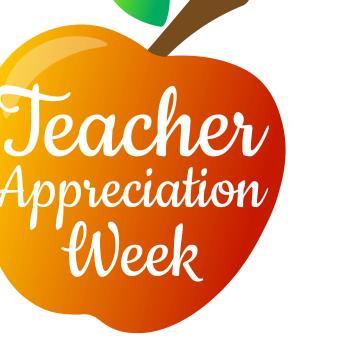
Since 1984, the National PTA has designated time each May for communities nationwide to honor teachers for their work with children. Parents, students, and schools across America celebrate Teacher Appreciation Week to show appreciation for the work and dedication of teachers and reaffirm the commitment to parent-teacher partnerships.
In celebration of Teacher Appreciation Week, read a book about a teacher such as Thank You, Mr. Falker, Miss Nelson is Missing, or a Magic School Bus story with Ms. Frizzle. Why are the teachers in these stories special? Have a class discussion about some of your students' favorite teachers. Then have students try these follow-up activities:
- Compare a favorite teacher to a teacher from a book with the Interactive Venn Diagram.
- Write a letter to a favorite teacher using the Letter Generator.
- Create a character map of either Miss Nelson or another storybook teacher with the Story Mapping tool.
- Use the Essay Map to plan and write an essay on why they would or would not like to be a student in one of the storybook teachers' classrooms.
- Read and present another book about a special teacher. Older students may choose books like The Miracle Worker by William Gibson, Tuesdays with Morrie by Mitch Albom, or A Lesson Before Dying by Ernest Gaines.
This National PTA resource offers ideas to help parents, students, and schools honor teachers during Teacher Appreciation Week.
The National Education Association offers these activities, appropriate for a Teacher Appreciation Week celebration.
This page from Reading Rockets celebrates teachers through notes of appreciation from parents, videos of authors and illustrators talking about their favorite teachers, and a link for users to send their own e-cards to teachers they appreciate.
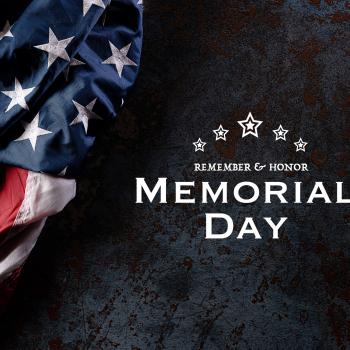
Observed on the last Monday of May, Memorial Day honors the men and women who died while serving in the United States military. In addition to having celebrations with family and friends, many people visit cemeteries and memorials and place flags on the grave sites of fallen servicemen and women.
Have students visit the Stories from the Veterans History Project site. Once there, ask students to choose one of the featured interviews to listen to, peruse the previous releases, or look at a list of collections to find more interviews that may be of interest to them. Students select an interview that interests them and take notes while listening to remember important facts and details about the veteran’s life. After listening to the interview, students complete one of the projects below to honor the veteran they researched:
- Create a timeline of the veteran’s life or time in the military.
- Using the story of the veteran’s life, create a picture book for younger children that tells the story of the veteran’s life or of the war in which he/she fought.
- Record the important facts and information from the veteran’s life using the Hero’s Journey interactive.
- Record a podcast that tells the veteran’s story.
This site includes a collection of personal accounts of American war veterans so that future generations may hear directly from veterans and better understand the realities of war.
Information on the history and traditions of observing Memorial Day in the United States is provided here.
This site includes a history of Memorial Day and tributes to soldiers; includes audio, video, and photos.

Today is the first day of the New Year on the Chinese lunar calendar. Each year of the calendar's 12-year cycle is represented by an animal. According to the Chinese zodiac, people born during a given year share traits with that animal. 2024 is the Year of the Dragon. Those born in the Year of the Dragon are known to be vigorous, ambitious, and honest.
Introduce students to the Chinese New Year by having them explore the Chinese zodiac. Begin the activity by having each student write five to eight adjectives or phrases that describe his or her personality traits. These should not be physical characteristics like hair color or height, but qualities such as "a good sense of humor," "honest," or "a risk-taker."
Then, have students look at the Chinese zodiac to find a description of the attibutes people would have if they were born in the same year they were. For younger students, try the Chinese Calendar, and for older students, try Chinese Horoscopes.
Once students have read their animal's attributes, have them explain how the animal does or does not seem to represent them. They should use specific examples from their own experiences to support what they say. For example, if the zodiac says that they have difficulty with authority, students should write about a time when they resisted (or did not resist) an authority figure.
Next, students can look through the other animal signs to see which one best represents them and write a persuasive piece describing why that sign fits them best.
This site offers information about the tradition and customs associated with Chinese New Year celebrations. Related links provide information on the Chinese zodiac and a Chinese New Year quiz.
This Farmer's Almanac resource offers printable posters, worksheets, puzzles, and cards to help students learn about the traditions of the Chinese New Year.
This quest resource provides kid-friendly information on the background and traditions of Chinese New Year. It includes information on activities leading up to and immediately following the New Year's Day.
This activity from National Geographic allows students to find their birth year animals and their related characteristics.
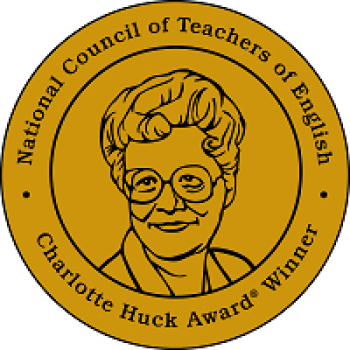
The NCTE Charlotte Huck Award® for Outstanding Fiction for Children honors the work of educator Charlotte Huck, who championed the classroom use of storybooks to teach reading and language arts. The award was established in 2014 to promote and recognize excellence in the writing of fiction for children that invites compassion, imagination, and wonder.
After sharing one or more of the winning, honored, or recommended titles as a classroom read-aloud, invite students write and illustrate their own story in which someone learned how to be more compassionate or to feel empathy for those who are different from themselves.
Allow students to decide to tell a story from their own lives or to create characters and imagined situations that would inspire others to be more compassionate. Share tools such as the Story Map and Cube Creator to help students plan and generate ideas. Arrange for a time for students to share their stories with classmates or with younger students.
This festival, hosted by the University of Redlands, brings together authors and illustrators of children’s literature with teachers, librarians, and families.
Charlotte Huck’s HarperCollins biography page includes a link to her book Princess Furball, illustrated by Anita Lobel.
NCTE’s page for its children’s book awards, also including the NCTE Orbis Pictus Award® for Outstanding Nonfiction for Children.
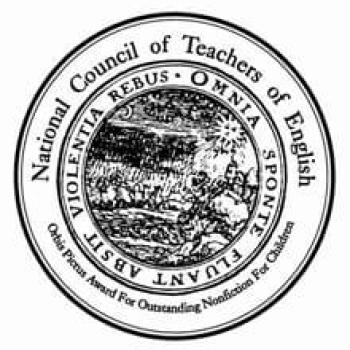
In 1990, NCTE established an annual award for promoting and recognizing excellence in the writing of nonfiction for children in grades K-8. The name Orbis Pictus commemorates the work of Johannes Amos Comenius, whose Orbis Pictus-The World in Pictures (1657) is considered to be the first children's picture book. One title is selected for the award each November at the Annual NCTE Convention, and as many as five Honor Books are also recognized.
Have your students conduct research and write original works of nonfiction on topics of their choice. Students may wish to work collaboratively on this project as coauthors or author-illustrator teams.
- First, have students brainstorm possible topics individually or in small groups.
- After each student or team has selected a topic, have them conduct research using appropriate Orbis Pictus Award-winners, Internet resources, and other reference sources.
- Have students plan and write informational picture books, biographies, or other works of nonfiction. You may wish to have students create a Flip Book to help them organize their information.
The National Council of Teachers of English provides information on the annual Orbis Pictus Award, including its history, selection criteria, and nomination procedures.
This sample chapter from the NCTE text The Best in Children's Nonfiction explores the elements that come into play as the committee chooses the winner.
This page, from the State Library of South Australia, offers information about Johannes Amos Comenius and his illustrated Latin primer for which the Orbis Pictus award is named. Additional links and an image from the book are also included.
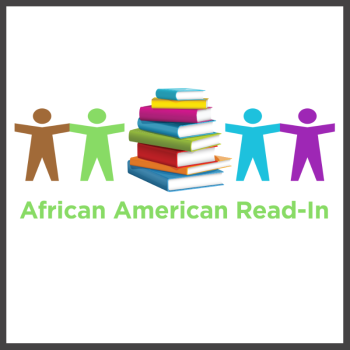
Celebrate Black History Month by taking part in the National African American Read-In. Sponsored by the Black Caucus of the National Council of Teachers of English (NCTE) and NCTE, and endorsed by the International Literacy Association, the goal is to document readers making the celebration of African American literacy a traditional part of Black History Month activities.
The African American Read-In will again be celebrated for the entire month of February, beginning February 1 and ending on February 28 (or 29).
Schools, churches, libraries, bookstores, community and professional organizations, and interested citizens can make literacy a significant part of Black History Month by hosting and coordinating community Read-Ins.
Hosting a Read-In can be as simple as bringing together family and friends to share a book or as elaborate as arranging public readings and media presentations that feature professional African American writers.
To be counted as a participant, simply:
- Select books authored by African Americans;
- Conduct your Read-In(s) on the days designated; and
- Report your results by submitting the African American Read-In Host Report Card.
This webpage from the National Council of Teachers of English is the official homepage for the African American Read-In. Included are details on the role of a host, how to submit the report card, background materials, and booklists for all ages.
Find a host of resources to get you started, but know that every event is truly unique!
This Library of Congress exhibit features documents that tell the story of the African American experience, from slavery to civil rights.
This National Geographic Kids website offers an extensive collection of articles, classroom resources, and reference materials related to African American culture and people.
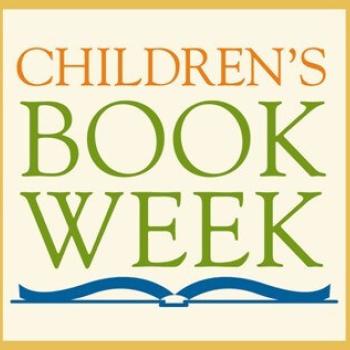
Children's Book Week encourages children to enjoy new authors and books, and is celebrated in schools, libraries, homes, and bookstores during a selected week in May and November. During this event, celebrate children's literature with storytelling, parties, author and illustrator appearances, and other literacy events in your school and community. As part of the celebration, children are invited to help select the top children's book of the year by voting online or at their school or library.
The winners of the Children's Choice book awards will be announced during National Book Week. Before the winners are announced, children across the nation will be able to vote for their favorites. Invite your students to show why their favorite finalist should win by designing a promotional book cover.
- First, have students read Children's Choice finalist books in their grade range. Younger students can read all five finalists, while older students may read fewer.
- Then, ask each student to select his or her favorite finalist and brainstorm reasons why it is so good. Encourage students to consider specific elements, such as characters or plot.
- Next, have students look at their brainstormed lists and select the ideas that could be depicted on the book cover. Challenge each student to design a book cover that will convince others that his or her favorite should win.
- Finally, have students use the Book Cover Creator to create their book covers. They can then display their book covers with the book in a classroom or school display or on a bulletin board.
Access information about this annual event on this site from the Children's Book Council. Included are dates for this event for the next five years, book week materials and information, and more.
Help children find the perfect book with these children's, teachers', and young adults' choices booklists from the International Literacy Association.
This resource from Scholastic provides a collection of suggestions for holding a successful Book Week event in your school.

The first Labor Day was celebrated in New York City on September 5, 1882. It became an official federal holiday in 1894 and is now celebrated on the first Monday of September. Born out of the rise of unions as part of the American labor movement, the day is marked by parades, picnics, and other celebrations—and it marks the unofficial end of summer.
Students tend to know little more about Labor Day than it's a day off of work and school. Encourage them to learn more about the American labor movement by giving them time to research one of the figures from the list below. In paris or small groups, they can locate print and Web based resources about their lives and contributions to labor reform. Groups can use the Biocube Interactive to organize and share what they learn.
- Jane Addams
- Sarah Bagley
- César Chávez
- Samuel Gompers
- Dolores Huerta
- Mary Harris Jones
- John L. Lewis
- Lucy Randolph Mason
- Luisa Moreno
- Leonora O’Reilly
- Albert and Lucy Parsons
- Franics Perkins
- Esther Peterson
- A. Philip Randolph
- Walter Reuther
- Rosina Tucker
This page from the US Department of Labor explores the legislation behind Labor Day and the controversy over the identity of its originator.
The History Channel's section on Labor Day offers articles, videos, and speeches related to the holiday.
This Time Magazine article offers an accessible introduction to the history and significance of Labor Day.
The History Channel's section on the Labor Movement offers an overview of key figures in labor reform.

Share a poem with everyone you meet on Poem in Your Pocket Day. As part of New York City's celebration of National Poetry Month, residents have participated in Poem in Your Pocket Day since 2002. Now the movement has gone national! Select a poem or compose an original work and carry it with you in your pocket all day, sharing the poem and the fun of National Poetry Month wherever you go.
Use the ReadWriteThink Stapleless Book tool to help your students celebrate Poem in Your Pocket Day, sponsored by the Academy of American Poets.
- Print, copy, and distribute copies of the Stapleless Book Planning Sheet. Ask students to brainstorm what they would like to include in their books of poetry.
- Have younger students select a poem, and space the poem a line or two at a time across the pages. They can add illustrations after they have printed. Older students can select a collection of poems they enjoy to include in the book.
- Give students time to type their poem(s) into the Stapleless Book tool.
- Have students print and create their books. They will need scissors to complete this step.
- Encourage students to take their books of poetry with them throughout the day, sharing them with people they meet.
- If time permits, print and prepare multiple copies of their books and have students put them in unexpected places throughout the building!
Part of Poets.org (online home of the Academy of American Poets), the Poem in Your Pocket Day page features the history of the event and ideas for celebrating-including a list of poems about pockets!
Billy Collins, former US Poet Laureate, encourages students to take daily pleasure and inspiration from the collection of poems on this Library of Congress site. In addition to the 180 poems, Collins offers advice on reading poems aloud.
The Favorite Poem Project, cosponsored by Boston University and the Library of Congress, is dedicated to celebrating, documenting, and encouraging poetry's role in Americans' lives. Watch or listen to citizens read poems they love.
The Poetry Archive uses digital recordings of a diverse range of poems to help make poetry accessible, relevant, and enjoyable to a wide audience. The site features historic and contemporary recordings and offers resources for students, teachers, and librarians.